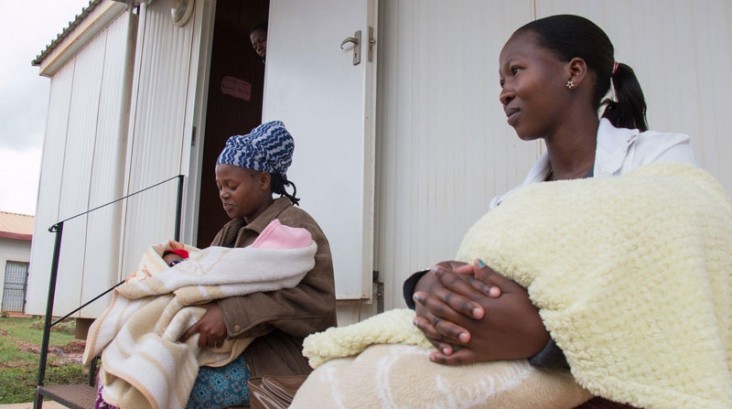- What We Do
- Agriculture and Food Security
- Democracy, Human Rights and Governance
- Economic Growth and Trade
- Education
- Ending Extreme Poverty
- Environment and Global Climate Change
- Gender Equality and Women's Empowerment
- Global Health
- Water and Sanitation
- Working in Crises and Conflict
- U.S. Global Development Lab


Emily Harris, MA
Public Health Advisor
Emily Harris, MA, is a Public Health Advisor in the Research Division in USAID's Office of HIV/AIDS. She leads multiple project teams dedicated to accelerating the introduction of innovative prevention and treatment products.
Recent Blog Posts
- What Can We Accomplish When We Partner for HIV Prevention?
Emma Burgess - November 3, 2016 - Implementation Science Graphic Brief in Review: Health Benefits of Linking women to Cervical Cancer Screening in Zambia
Samantha Luffy - September 30, 2016
As we begin a new year, we look forward with hope and wishes for health and prosperity. It’s fitting that this month, a new study known as ADVANCE, supported by the U.S. Agency for International Development (USAID) and UNITAID, launching in South Africa could help achieve better health and wealth for many countries combating the HIV and AIDS epidemic.
It is possible that the ADVANCE study could provide the proof of concept for two new drug combinations, which could treat an additional 2 million people by 2019 without an increase in cost. Increasing the number of people on treatment within current budgets can play a crucial role in achieving a sustainable AIDS-free generation.
Thirty years ago, being HIV positive was a death sentence. Today, as a result of dedicated funding, research and innovation, HIV is a manageable condition with which people can live their whole lives. Effective antiretrovirals have played an enormous role in this shift, but there is still work to be done to help make HIV treatment options better, safer and less expensive for those who need them most.
USAID, under the U.S. President’s Plan for Emergency AIDS Relief (PEPFAR), is committed to helping create a world where HIV and AIDS are no longer burdens on health and development. This means reaching those who are most vulnerable to HIV and AIDS and developing sustainable solutions to fight this epidemic.
Through the ADVANCE Study, implemented by Wits Reproductive Health and HIV Institute (Wits RHI), the Agency will evaluate new antiretroviral drug combinations that are safer, more tolerable, smaller and substantially cheaper. The study, which will involve 1,100 participants over 96 weeks, is specifically looking at two drugs: dolutegravir (DTG) and tenofavir alafenamide (TAF).
While each drug has demonstrated strong results individually, this study aims to evaluate the potential power of their use in combination. If the ADVANCE study shows positive outcomes, the lower dosage medications and smaller pill size will result in cost savings for both donor organizations and country governments. This will ultimately allow lifesaving antiretroviral therapy to be more widely available and sustainable in low- and middle-income countries. The combination of DTG and TAF may also reduce current treatment side effects, increasing the likelihood of patients taking their medications and improving their wellbeing overall.
ADVANCE is a key component of the Agency’s support for the OPTIMIZE consortium, a global partnership working to accelerate access to simpler, safer and more affordable HIV treatment. Led by Wits RHI and harnessing the diverse expertise of ICAP at Columbia University‚ Mylan Laboratories‚ the University of Liverpool and the Medicines Patent Pool, OPTIMIZE represents the Agency’s commitment to supporting innovative solutions to address challenging development problems.
As we move closer to getting more and more people on treatment worldwide as a result of the World Health Organization’s Test and Start Guidelines, the possibility of better and cheaper drugs can allow our development dollars to stretch even further.
Learn more
- ADVANCE Trial Fact Sheet [PDF, 246KB]
- New Study Seeks to Accelerate Access to Simpler, Safer and More Affordable HIV Treatment
- Better‚ safer‚ cheaper: the new HIV treatment about to undergo full-scale tests in SA
- Cutting the cost of South African antiretroviral therapy using newer, safer drugs
- SA organizations chosen to address HIV and AIDS globally







Add new comment